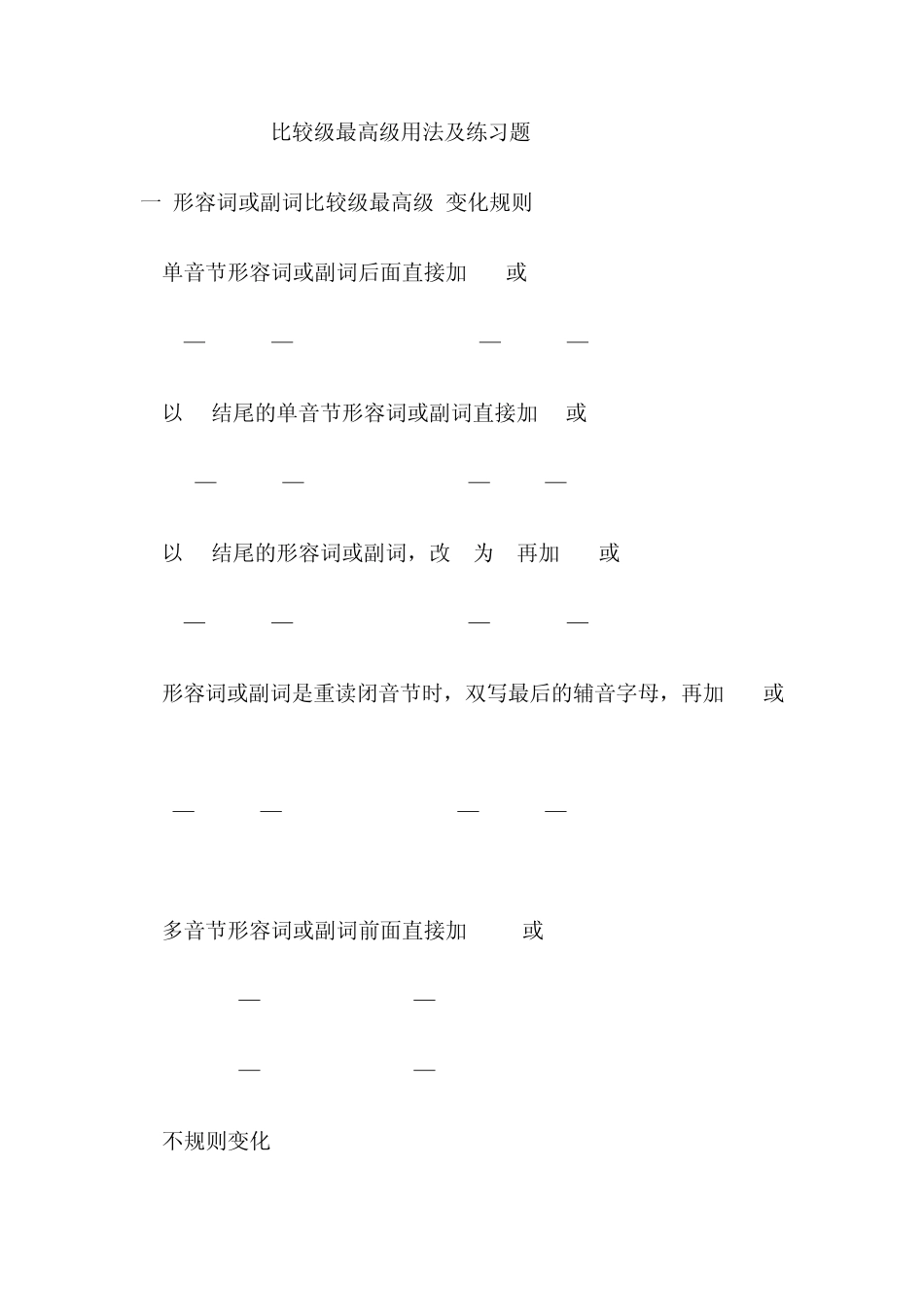比较级最高级用法及练习题 一.形容词或副词比较级最高级 变化规则 1.单音节形容词或副词后面直接加-er或-est tall—taller—tallest fast—faster—fastest 2.以-e结尾的单音节形容词或副词直接加-r或-st large—larger—largest nice—nicer—nicest 3.以-y结尾的形容词或副词,改 y为 i再加-er或-est busy—busier—busiest early—earlier—earliest 4.形容词或副词是重读闭音节时,双写最后的辅音字母,再加-er或-est hot—hotter—hottest big—bigger—biggest fat-fatter-fattest 5.多音节形容词或副词前面直接加more或most delicious—more delicious—most delicious beautiful—more beautiful—most beautiful 6.不规则变化 good (well)—better—best bad (badly)—worse—worst 形容词、副词的比较级和最高级的句子公式: 一. 词形变换。 比较级 最高级 large _________________ ___________________ fast _________________ ___________________ easy _________________ ___________________ 比较级 最高级 wet _________________ ___________________ good _________________ ___________________ important _________________ ___________________ well __________________ ___________________ bad _________________ ___________________ many _________________ ___________________ little _________________ ___________________ far _________________ ___________________ strong _________________ ___________________ patient _________________ ___________________ safe _________________ ___________________ expensive _________________ ___________________ 二. 选择填空。 1.Birds can fly _____________, eagles can fly _______________than birds. They fly _____________ in the world. ( high, higher, highest ) 2. I am _____________ than my brother, but my little sister is the ______________ of us. (fat, fatter, fattest ) 3. Which can swim ______________, fish or sharks? ( well, better, best ) 4. The green book is a _______________ book, but the red one is much _____________ than the green one. It’s the _...


